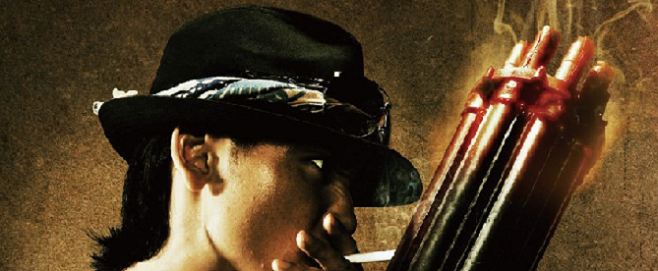
Milocrorze: A Love Story at NYAFF
So this is the movie they kicked off the 2011 NY Asian Film Festival with – a meditation on love from a male perspective. Obviously a bit of a nod to their Star Asia Rising Star Award recipient Takayuki Yamada (who plays three roles in this film), but he is probably more known to American audiences for his role in Takashi Miike’s 13 Assassins.
The movie is fun and vibrant but also all over the place. As director Yoshimasa Ishibashi said at the intro to the film, it’s more of a roller coaster than a traditional narrative, which is very appropriate. You experience the film more than you are engaged with the characters, which seems about right as we’re dealing with the video artist behind the Fuccon Family from the late-night TV Tokyo comedy show, Vermilion Pleasure Night.
It’s the tale of love lost, as told by a young child who falls in love with our titular Milocrorze. The story is delivered with a colorful innocence that calls to mind Amelie or the TV series Pushing Daisies. The film then abruptly cuts to a youth counselor who comically attacks all wimpy, wishy-washy youths in love via his love advice hotline – then breaks into song and dance numbers.
Finally we’re driven headfirst into the story of a samurai seeking his lost love, stolen from him by bandits. This is the part of the film you may’ve heard about, the highlight being a slo-mo samurai sword showdown in a brothel. Only afterwards when the director mentioned that poses were based on Kabuki illustrations did this section make any sense to me.
The scene may be what people talk about, but in the context of the film it stops things dead in their tracks. Suddenly, you’re aware that there’s been no solid narrative, that there’s a reception party starting and you’re still here watching this movie that you were enjoying when this gratuitous scene of cinematic violence interrupts and slows things to a crawl.
Overall the movie is fun and a nice, refreshing take on love stories that cut deep, going from heartbroken innocence to chauvinistic berating of lovelorn wimps to a warrior’s tale of never letting go of a love cut down too soon. Visually it’s spectacular and hypnotic, but this scene that you hear about being its calling card is nothing but.
In the end Milocrorze reads like a filmmaker’s reel, showing us all the tricks and genres that he can work with. It’s an experience unlike almost any that cinema can deliver, but a coherent story that provides a satisfactory resolution will not be found here.





